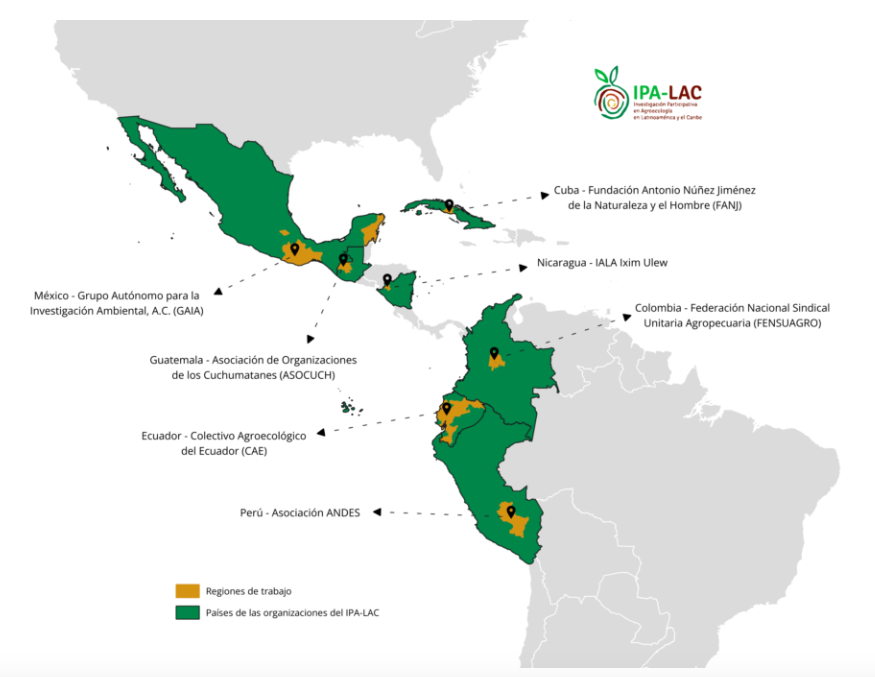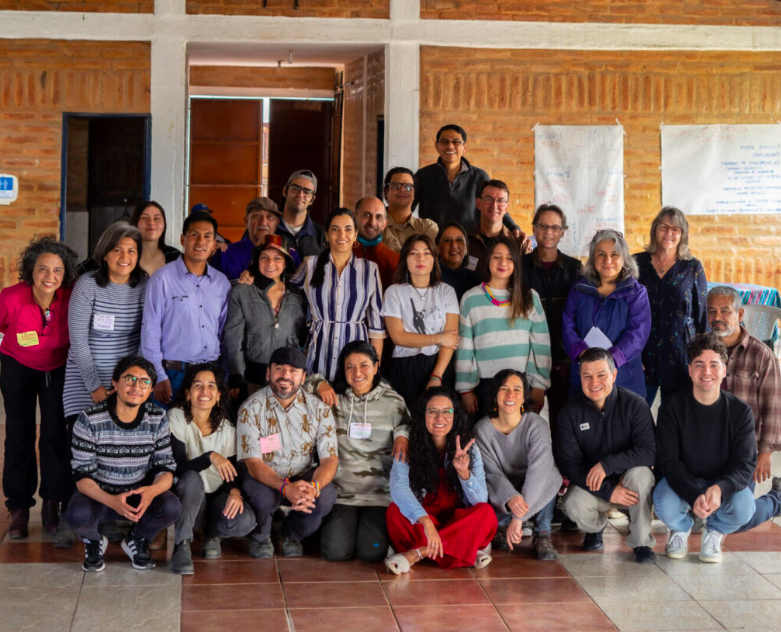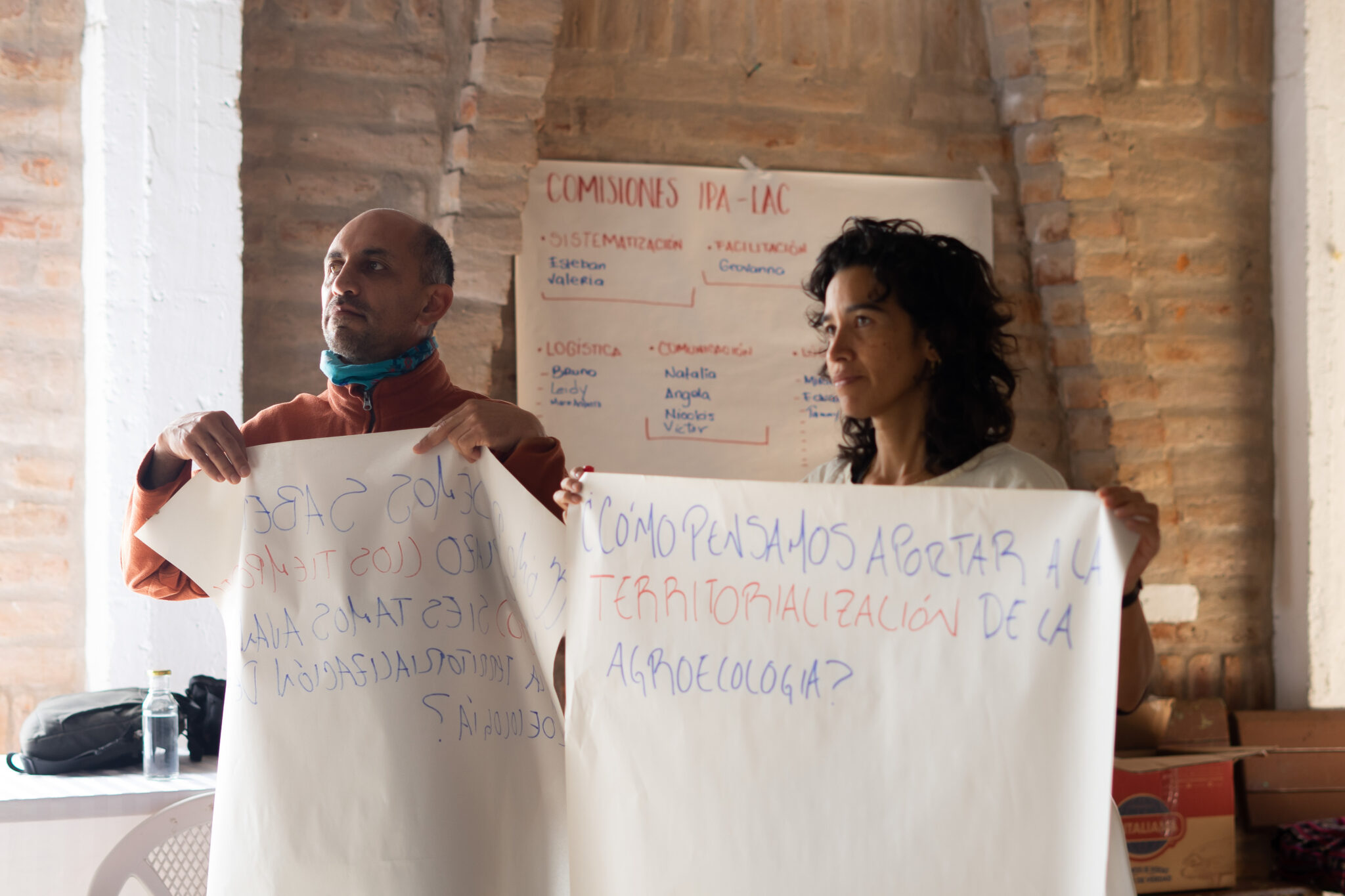At its roots, agroecology is about iterative, applied learning. The lessons from this learning are best shared—for practical application—by the organizations and networks that are engaged in on-the-ground science, practice, and advocacy. This commitment to collective “action-reflection-action” is what makes a movement strong.
In addition to our global and regional grant programs, The Agroecology Fund is honored to provide support for two participatory action and learning processes to leading organizations and networks in their territories. While shifting funding toward agroecology is our primary mission, creating space for learning, facilitating research, and collaborating across geographies is also central to our work.
Participatory Research for Agroecology in Latin America and the Caribbean
In April 2023 the Agroecology Fund launched the Participatory Research for Agroecology in Latin America and the Caribbean (IPA-LAC) initiative with funding from the International Development Research Centre (IDRC). We approved grants for seven participatory research collectives in Mexico, Cuba, Guatemala, Nicaragua, Colombia, Peru, and Ecuador.

The Research Group on Agroecology at El Colegio de la Frontera Sur (ECOSUR) provides methodological support to each collective and facilitates the learning community. Each collective seeks to answer research questions relevant to local actors committed to the transition and scaling up of agroecology for the construction of resilient food systems. In addition to virtual meetings, the IPA-LAC collective holds face-to-face meetings to deepen reflection on strategic themes.

The First Meeting of the Regional Collective for Participatory Research in Agroecology in Latin America and the Caribbean, took place from July 23 to 27, 2023, in the city of Cotacachi-Ecuador, with delegates from nine countries. The Regional Collective bases its unity on the diversity of approaches, territories, dynamics and experiences. They recognize that the Indigenous, peasant, and Afro-descendant organizations of the people of Latin America and the Caribbean have historically struggled to resist and transform food systems and join to support their processes. The Regional Collective comes together to rethink and embrace the holistic nature of agroecology, and to discuss interest in promoting agroecology as a transformative practice.
The second meeting will be held in Cuba in June 2024 to learn about the participatory research on food system governance carried out by Cuban partners, exchange experiences, and make progress in defining metrics to verify the results of the IPA-LAC initiatives, which will be completed in the first half of 2025. Subscribe to our newsletter to receive an update about the Cuba gathering in your inbox later this summer.
Participatory Action Research to Strengthen Global Agroecology and Climate Justice Movements’ Approaches to Food Systems Change
In November 2023, Waverley Street Foundation joined the Agroecology Fund with an investment of $16 million over four years to support collaborative research and advocacy among agroecology and climate justice networks and, through them, among farmers, scientists (biophysical and social), consumer groups, and policymakers, to explore how to create an enabling policy environment to scale up agroecology as a climate solution.
With this large investment in the Agroecology Fund, Waverley Street Foundation is demonstrating to the donor community how we can collectively invest in grassroots, movement-led food systems change at scale.
Daniel Moss, Co-Director, Agroecology Fund
This partnership, inspired by the IPA-LAC initiative model, enabled the Agroecology Fund to deepen its existing partners’ work in Asia (India and Indonesia), Africa (Ethiopia, Kenya, Nigeria, and South Africa), Americas (Argentina, Brazil, Colombia, Mexico, and the USA) and Europe (France), building on successes and momentum. Through participatory action research, multi-sectoral collaborations will implement, research, and strengthen advocacy strategies for food systems policies that link climate resilience, food systems, and agroecology.
Agroecology Fund reflects our commitment to climate solutions that address community resilience. We believe it is imperative to shift policy and public funding toward supporting healthy, climate-resilient food systems rooted in agroecology.
Amanda Eller, Strategy Director, Waverley Street Foundation
Over the next four years, guided by a participatory research approach, these collaboratives will pursue critical research questions and leverage data to galvanize policy changes supporting agroecology-based food systems as climate resilience strategies. The process will also contribute to strengthening the agency of civil society in food systems governance.
Subscribe to our newsletter for updates about all of our work, and if you don’t already follow us on LinkedIn, please join us there to engage in more regular conversations.
